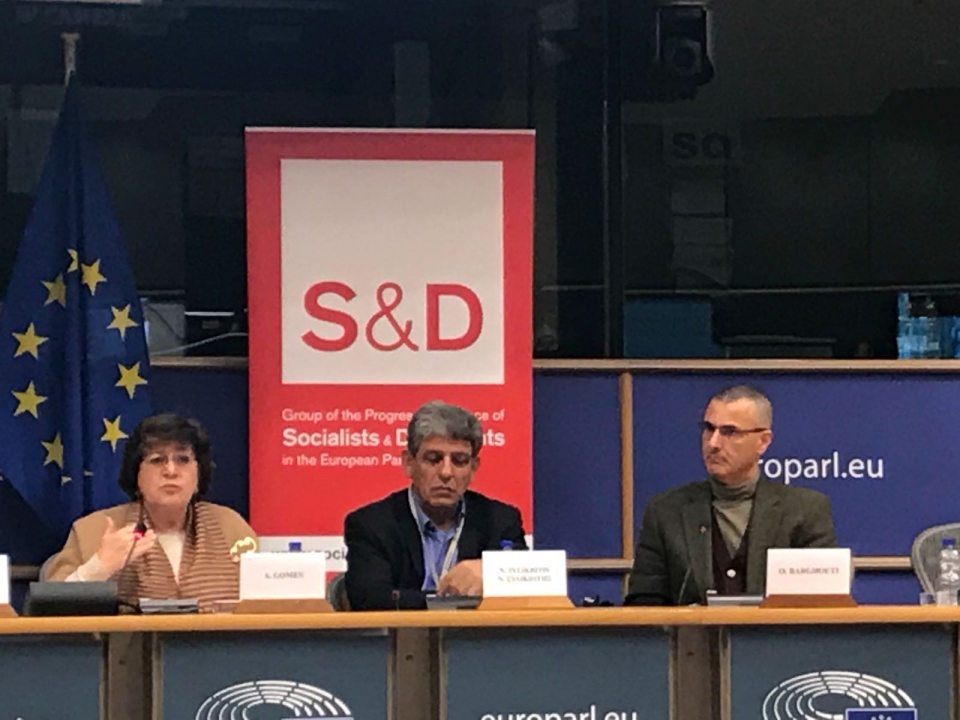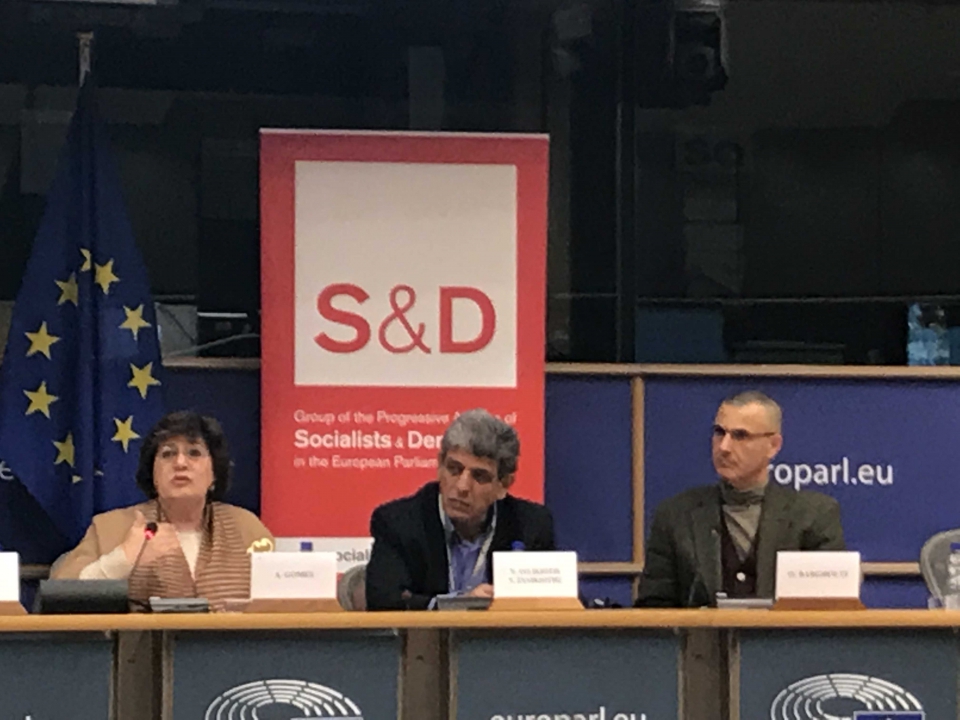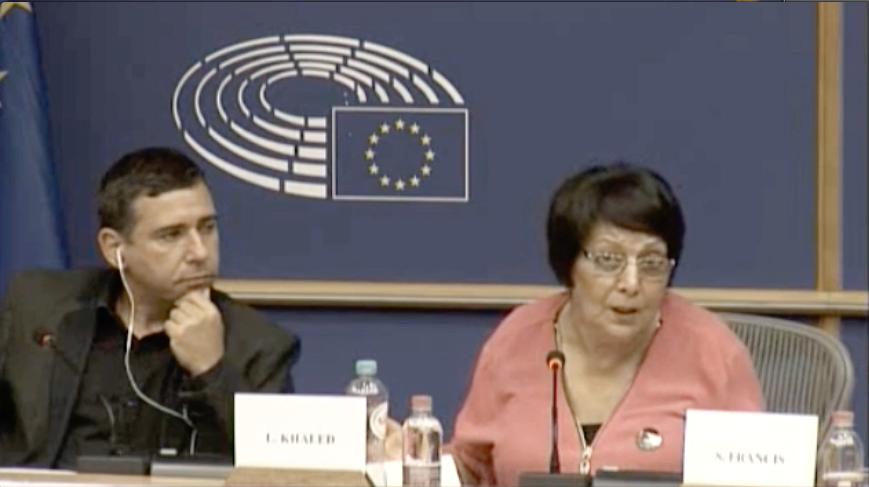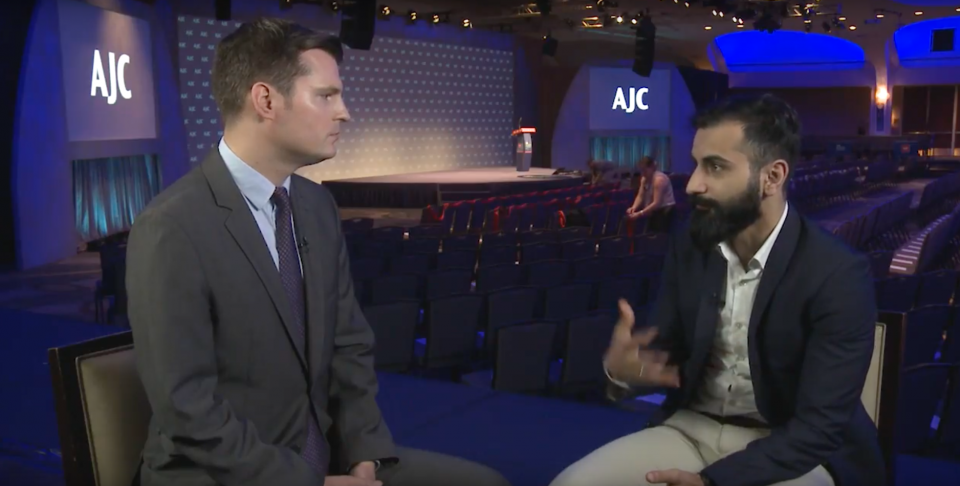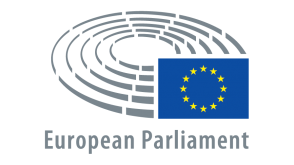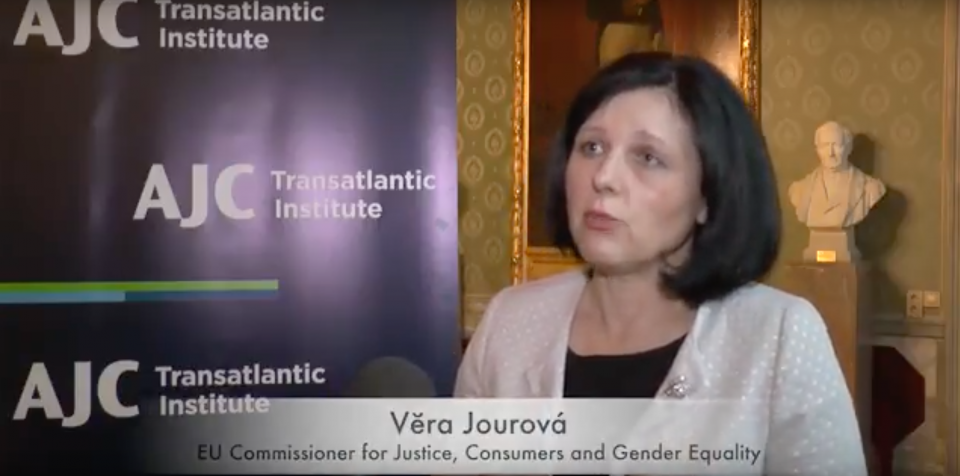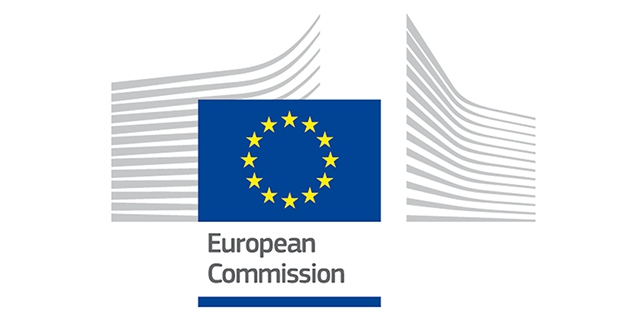Press releases
AJC Transatlantic Institute calls on MEPs to vote for the Resolution on Combatting Antisemitism
Brussels – 30 May 2017 - The AJC Transatlantic Institute today called on Members of the European Parliament to vote on Thursday for the Resolution on Combatting Antisemitism, which, in order to be effective, ought to include the working definition of anti-Semitism of the International Holocaust Remembrance Alliance.
That definition doesn’t limit free speech, as some critics wrongly say, because it isn’t legally binding and specifically states that criticism of Israel as such can’t be regarded as anti-Semitic. Instead, it explains how, for example, the demonization of Israel, not legitimate or even extreme criticism, can be a form of modern anti-Semitism.
“Those who falsely claim the working definition limits freedom of expression are basically demanding the freedom to demonize Israel and to hold Jews collectively responsible for Israel’s actions, real or imagined--in other words they claim the right to engage in anti-Semitism,” said Daniel Schwammenthal, Director of the AJC Transatlantic Institute. "The European Parliament has a chance and duty this Thursday to clearly reject such anti-Jewish hate speech. This is a matter of urgency as within living memory of the Holocaust, the remnants of Europe’s Jewish communities have endured a steep rise in anti-Semitic terrorism, attacks and incidents,” Schwammenthal added.
Since 2012 alone, at least 14 people have been killed in anti-Jewish violence in the EU.
In 2015, the European Parliament adopted a resolution on anti-Gypsyism and thus already correctly recognized that the specificity of certain forms of group hatred requires specific attention. It is high time that the European Parliament adequately address also the concerns of Europe’s dwindling Jewish community.
Moreover, the European Parliament would not be alone in supporting the definition. In May 2016, IHRA’s 31 Member States, of which 24 are EU members, unanimously adopted the definition by the EUMC, the EU Fundamental Rights Agency’s predecessor. In January 2017, all EU members of the OSCE welcomed IHRA’s adoption of the definition and confirmed their support for the definition’s endorsement at the OSCE. Commissioner Věra Jourová politically endorsed the IHRA definition in January. The UK adopted the IHRA working definition in December 2016, followed by Austria this April. It is already commonly used by the British police, the training of Austrian and Romanian prosecutors, and NGOs tracking anti-Semitic incidents.
The working definition includes other contemporary examples of anti-Semitism, such as: 1) Calling for, aiding, or justifying the killing or harming of Jews in the name of a radical ideology. 2) Making dehumanizing, or demonizing allegations about Jews — such as the myth about a world Jewish conspiracy. 3) Accusing the Jews as a people, or Israel as a state, of exaggerating or inventing the Holocaust. 4) Holding Jews collectively or individually responsible for Israel’s actions.
